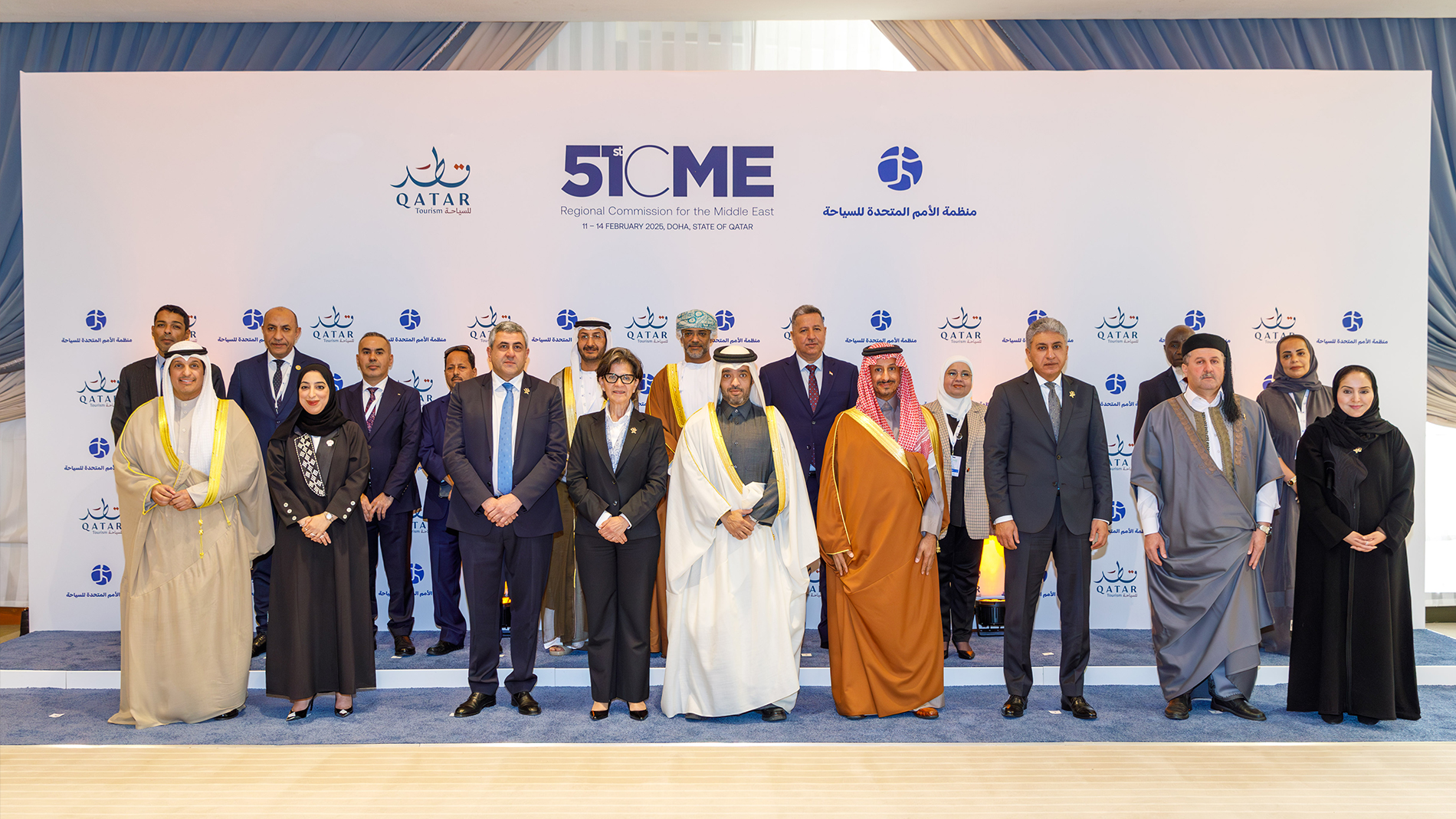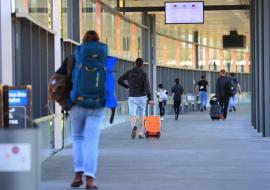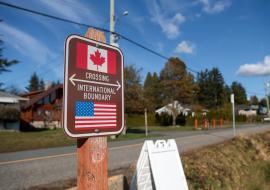Middle East Members Support UN Tourism’s Vision for Education and Sports Tourism Leadership

UN Tourism’s 51st Regional Commission for the Middle East gathered high-level delegations from 13 Member States, including eight Ministers of Tourism, to assess progress and set priorities for the region’s continued growth. The Middle East ended 2024 as the world’s fastest-recovering tourism region, with Qatar on track to welcome 6 million tourists annually and increase tourism’s contribution to 12% of GDP.
Education and workforce development were key focal points, with 30,000 students—over half of them women—enrolled in the UN Tourism Online Academy, supported by 18 academic partners. Saudi Arabia’s Riyadh School of Tourism and Hospitality is also equipping professionals with essential skills. New initiatives, such as the UN Tourism Education Toolkit in UAE high schools, further reinforce the region’s leadership in tourism education.
Sports tourism emerged as a major economic diversification tool, with Qatar’s FIFA World Cup 2022 serving as a model for global destinations. Other key events, including Formula 1 in Bahrain and UAE, the Dakar Rally in Saudi Arabia, and high-profile investments in international football, solidify the Middle East as a hub for sports tourism and global sporting events.
Regional cooperation was also a highlight, with Kuwait appointed Chair of the Regional Commission (2025-27), Qatar as First Vice-Chair, and Iraq as Second Vice-Chair. Egypt and the UAE secured positions on the UN Tourism Executive Council (2025-29), while Saudi Arabia and the UAE will play key roles in online education and tourism protection policies.
Looking ahead, the 52nd Regional Commission for the Middle East will be hosted in Kuwait in 2026, reinforcing the region’s commitment to collaboration, innovation, and sustainable tourism growth.














